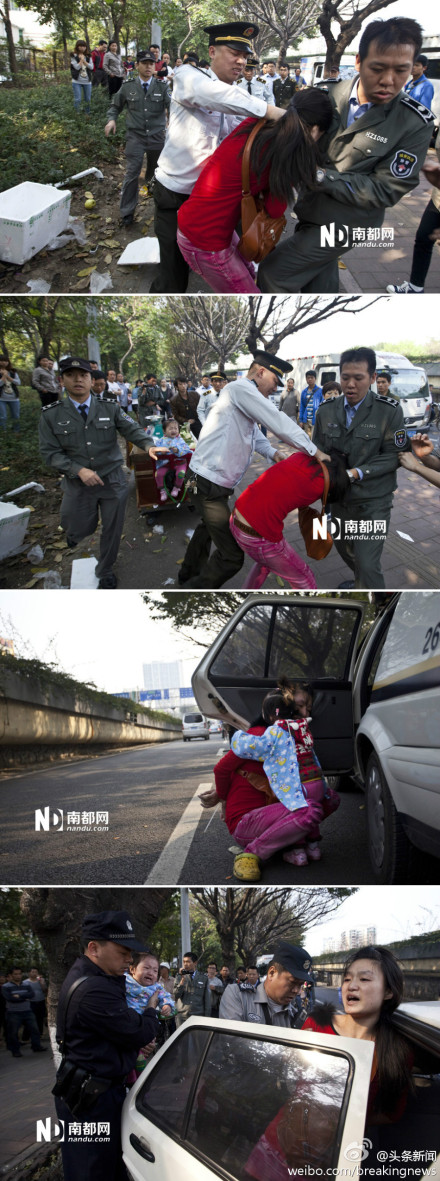Fairness has been one of the central themes at China’s ongoing National People’s Congress. There has been chatter about the country’s “inefficient growth model,” about the need for more equity in areas like income distribution, housing and education. Party leaders have pledged to “construct a fair social system and realize more efficient growth.”
Nearly all of these issues touch on the intractable question of how China will deal with its massive population of “rural” migrant workers, or nongmingong (农民工), who account for roughly half of China’s official figures on “urbanization” of its population (52%), but who really exist in an unstable no-man’s land between the city and the countryside, cut off from social services.
As often happens during the NPC, it’s the stories breaking on the margins that tell us the most about the real challenges facing China. And one of the top stories breaking in the newspapers and on social media today goes to the heart of the above-mentioned set of challenges about urbanization and China’s migrant population.
According to reports today by Guangdong’s Southern Metropolis Daily, a conflict broke out in Guangzhou’s Haizhu District yesterday between a migrant woman selling guava on the street-side and urban management officers, or chengguan (城管) who were trying to get her to clear off.
For those who aren’t familiar with them, chengguan are non-police urban enforcers set up by local city governments across China to deal with issues of urban order and cleanliness, such as illegal building structures and unlicensed commercial activity. They are known for their violence, particularly against migrants, and are generally despised by the public.
Reports have widely circulated alleging that one of the officers — even his badge number, X080324, has been shared — grabbed the woman by the throat as her terrified toddler looked on. While authorities in Guangzhou have denied these reports, images like these are rapidly making their way across social media today.

The above post from the “Breaking News” Weibo — one among thousands — had drawn more than 36,000 reposts and more than 14,000 comments by early afternoon. The post linked to a Sina slideshow that had drawn more than 80,000 viewers.
The Guangzhou story has naturally brought fevered discussion about the issue of social fairness. It has also drawn remarks about the National People’s Congress. Invoking the recent case of a baby in the city of Changchun who was found dead after the SUV in which his parents had left him was stolen from a rest stop [See Chinese report here
], one user wrote on Weibo:
Who is more fortunate? Is it Little Hao Bo in Changchun, or is it this child in Guangzhou? Wake up, you sleeping delegates!
The post is accompanied by images of the Changchun child, “Little Hao Bo”, and the Guangzhou child, followed by a composite (originally from Reuters) of delegates sleeping during Premier Wen Jiabao’s government report to the NPC.

In another post, a user wrote: “This kind of violence, this kind of inhumanity, fills one with terror. People have the freedom to set up a stall and make a living for themselves, so long as they respect environmental hygiene!”
“For the system to tacitly approve this kind of inhumanity is the worst evil of all,” read one comment underneath the post.
“The Guangdong delegates to the ‘two meetings’ should respond to this and tell us what they think,” read another.
Another suggested solving the domestic issue of chengguan violence and a festering territorial dispute with Japan all in one stroke: “I encourage the NPC to draft a proposal for the sending of all urban management officers to the [disputed] Diaoyu Islands, where they can be responsible for environmental work!”




















